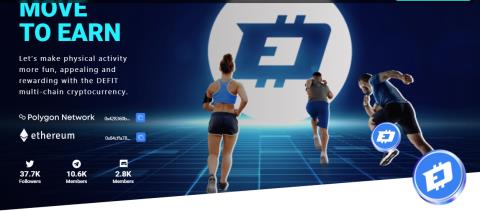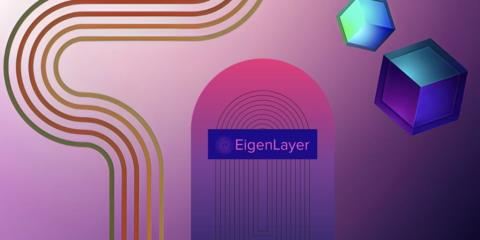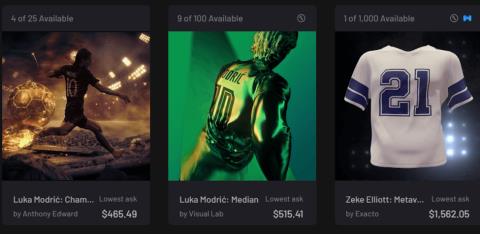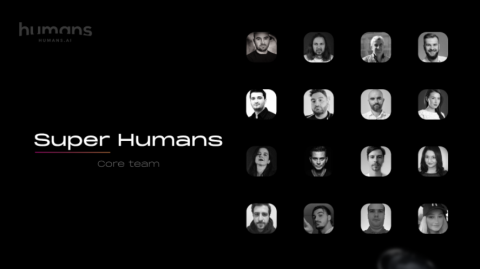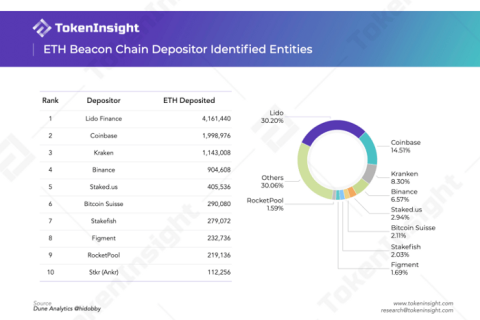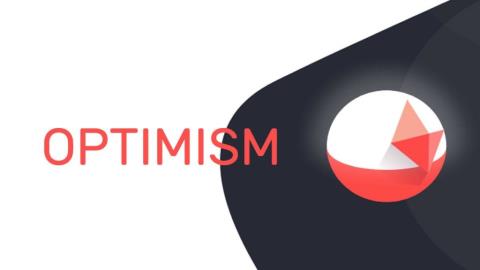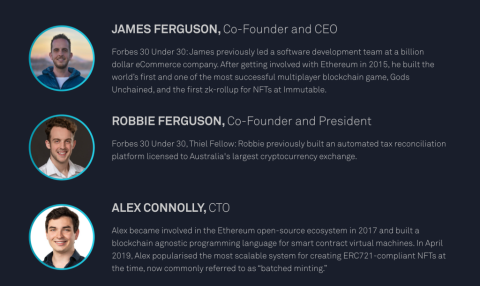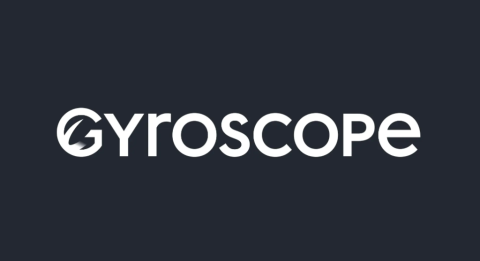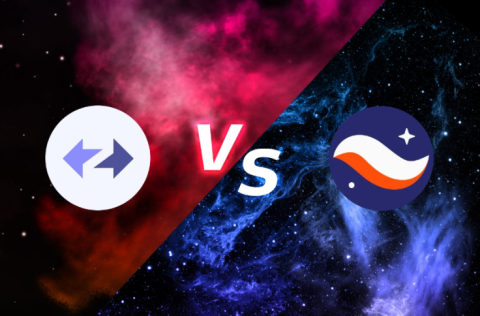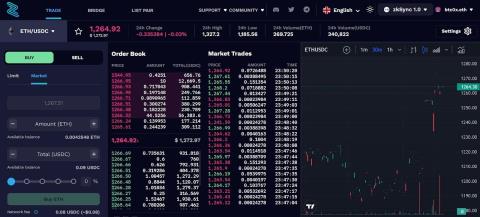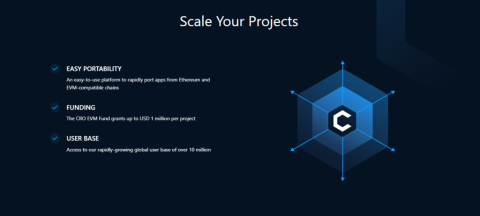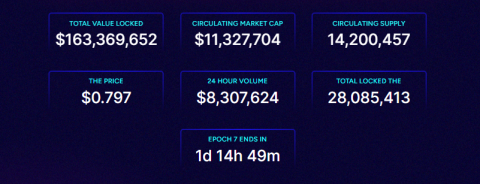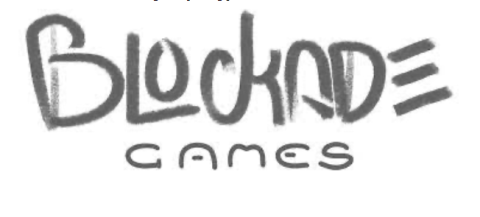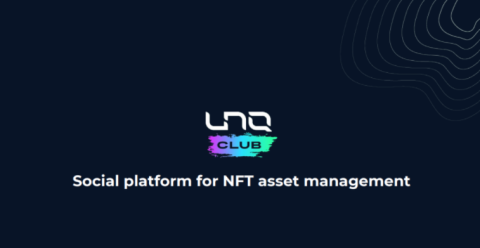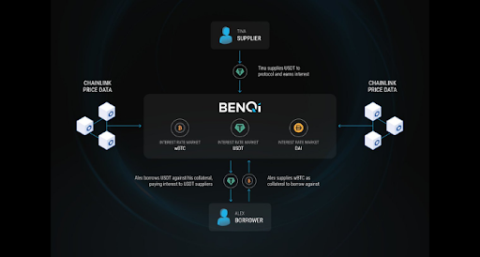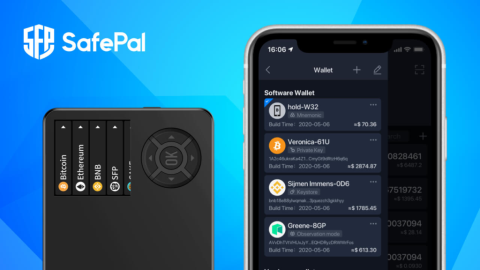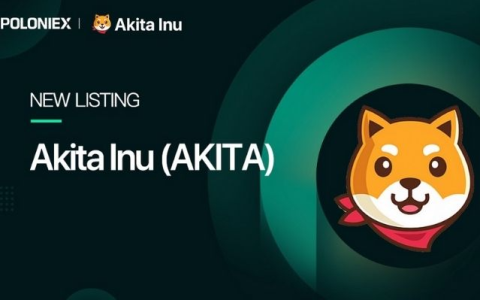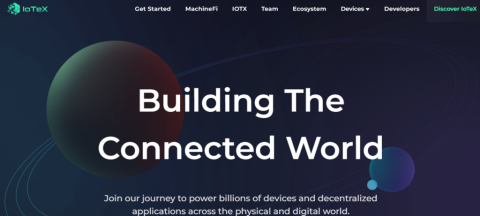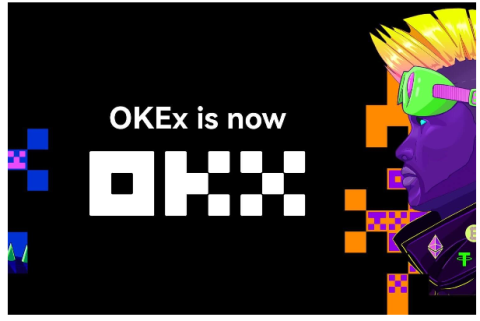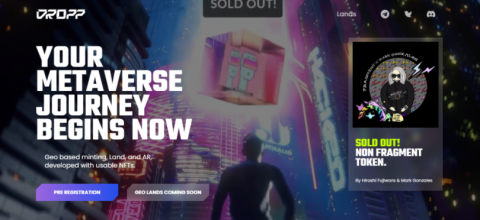Sei Network and Ecosystem Overview
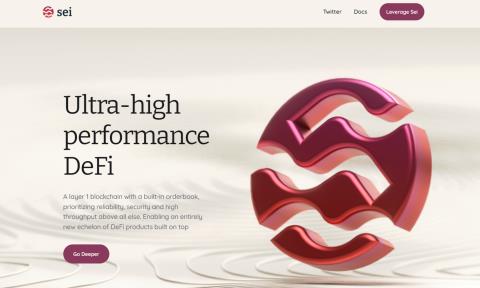
Let's learn about Sei Blockchain - a layer 1 chain focusing on trading. Dubbed “Decentralized NASDAQ” as it focuses on providing CeFi trading experience with DeFi tools.
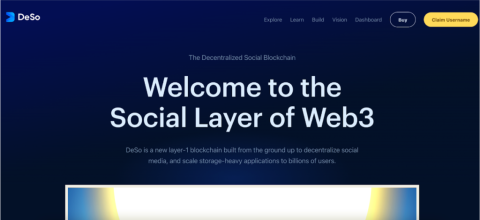
It's a web3 social layer that enhances the way we interact with each other. The use of open on-chain data allows many decentralized social media applications to share data quickly. Blockchain's cost-effective technology is also designed to store data efficiently. Use this guide to learn more about DeSo and how it affects the future of social media.
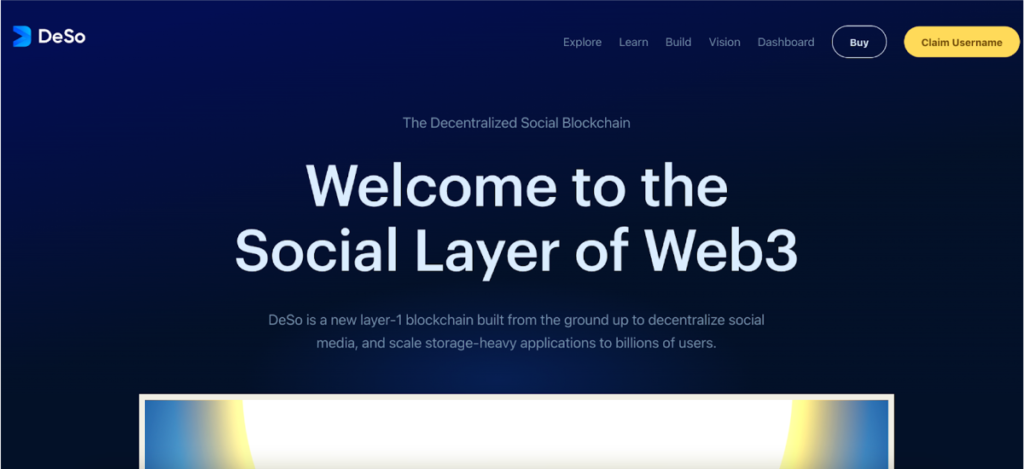
DeSo is a decentralized social network that not only provides users with most of the functionality of a Web 2.0 social media platform, but also enhances it by giving users ownership of their own content. and the ability to monetize that content.
DESO is the native token on the decentralized social blockchain. This unique, open-source Layer 1 blockchain is designed to support and scale social media applications that require large amounts of data.
DeSo aims to be the first decentralized blockchain-based social media platform. The DeSo platform will connect people with similar interests and give people more control over their social media interactions. Since the platform is blockchain-based, users will also be able to maintain a sense of privacy and an additional layer of security when interacting with each other.
As social media continues to grow, privacy is becoming a bigger issue. The major social media platforms have a long history of controlling and selling user data. DeSo allows users to control every aspect of their social graph in a decentralized environment. Not only does this give you access to all your social content on one platform – it also means that you actually own your own data.
DeSo also makes it easier for social media apps to scale. Web 2.0 social media platforms require a lot of digital memory to support billions of users. Uploading “likes”, images, and status updates to a blockchain like Ethereum would cost millions of dollars more than DeSo. According to their website, the cost of storing around 200 characters on-chain is $0.000017, compared to Ethereum's $78.75. Even more cost-effective options like Cardano or Avalanche don't equal the platform's hosting prices.
DeSo uses an interplanetary file system, or IPFS, which connects all devices on a network to the same set of files. This data is not stored in a single location – as on a typical Web 2.0 social network – making it less vulnerable to hackers.
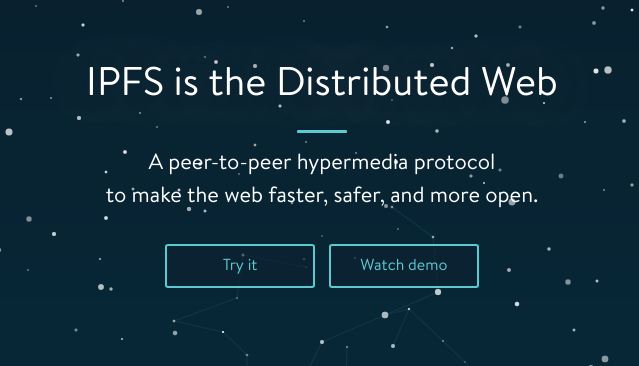
The token-based system allows all users to easily access and contribute to the network. DeSo's native token, DESO, can be exchanged between users on the network. Users can also earn by posting content, commenting or liking posts and tagging other users. Content creators can also easily get diamonds, which are deposited directly into users' wallets. According to Decentralized Social's readme file, some users earn thousands of diamonds per week.
All activities on the DeSo platform have a price. Whether you're voting in a poll or posting a status update, you'll need to pay tokens. The more active you are on the blockchain, the higher the fees. While this may sound detrimental at first, keep in mind that 25% of the fees collected will be redistributed to the owner.
The decentralized social network is based on the Ethereum blockchain, but it uses a combined PoW consensus mechanism to work. This results in much lower energy costs. Although the hybrid PoW mechanism works well, the DeSo Foundation has announced that a PoS proposal is in the works.
The decentralized social network has a number of features that make it a truly unique platform. Most blockchains are built with decentralized finance (DeFi) applications in mind. Instead, DeSo focuses on running social media applications. Social media has some different requirements than regular DeFi apps, especially when it comes to interaction and storage. These are just some of the features that set DeSo apart.
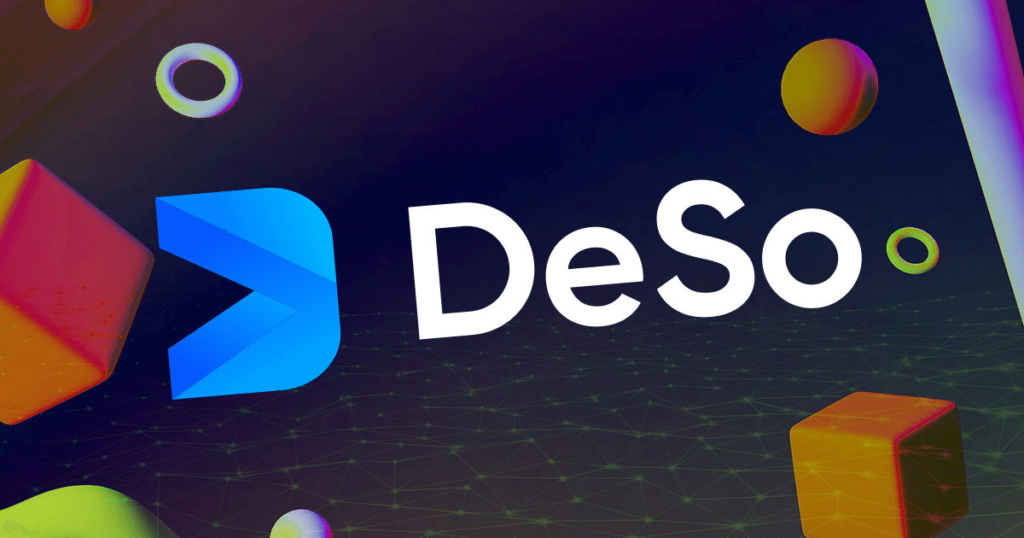
The DeSo platform currently uses a hybrid consensus mechanism to operate. By using the Proof-of-Work (PoW) model , the blockchain is able to maintain a high level of security while using significantly less energy than other major blockchains. The development team is working continuously to enhance the model and has plans to migrate to the PoS protocol in the future.
The social graph illustrates the connections between users, groups, and organizations on a social network. With decentralized social media, all user data is open. This allows users to store all their social posts and graphs directly on-chain, which makes it impossible for social platforms and third parties to use your connections against you. .

Most blockchains are designed to store small amounts of data for efficiency. While DeFi protocols typically require only a few bytes of storage, social applications require infinite amounts of data. Hypersync solves this problem while also enabling enhanced scalability.
Blockchain operations are usually synchronized by downloading blocks. Every transaction contained in the block is downloaded. Although this can happen very quickly, it uses a large amount of data to process each transaction. Hypersync reduces the amount of data being used by providing users with a snapshot of block activity. Logs are truncated and made smaller and more efficient.
On-chain storage is a problem for many blockchain networks. When it comes to the storage required for large social media networks, blockchain technology often can't keep up. That's because most blockchains are built to power applications in a finite state, with a set amount of storage requirements. However, social media applications are applications in an infinite state that can grow endlessly. The DeSo platform uses a custom-built complex indexing system to scale.
DeSo Identity Service is a development tool that allows users to easily store key pairs or credentials in applications built on the DeSo platform. Developers don't need to worry about creating extensive forms or input validation for personal identity verification. Instead, this is seamlessly integrated into the app.
There are hundreds of Decentralized Social applications accessible on the DeSo platform. With several developer tools available, new applications will appear regularly. Among the most popular are:
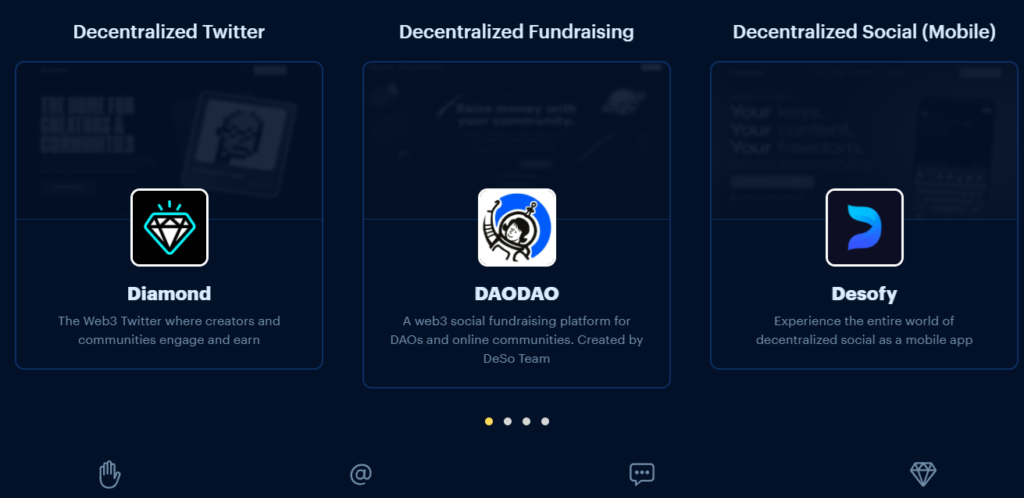
The DeSo platform is the perfect place for content creators to make money. With so many decentralized social apps, there are dozens of ways creators can get paid for their work so they can start earning extra income. With Web3 and blockchain technology, it's easier for creators to maintain ownership of your content and connect with your followers.
Each profile on the DeSo platform has a unique social token assigned to it. Also known as creator money, social tokens are a unique asset that can help attract users to your content. When creator coins are sold, creators get a share known as founders reward or FR for short. Although the default FR for social tokens is 100 percent, you can reduce this amount later to attract investors.
Using creator funds can be a great way to raise additional funds for a project. You can find unique ways to promote your social tokens online.
NFT is continuing to grow in popularity. Using the NFTz app, artists can sell their work to the highest bidder, just like they do on OpenSea. Unlike other blockchains, creating a new NFT on DeSo costs very little and uses a gas-free minting process. The social area also allows you to easily coordinate NFT projects and build your fan base.
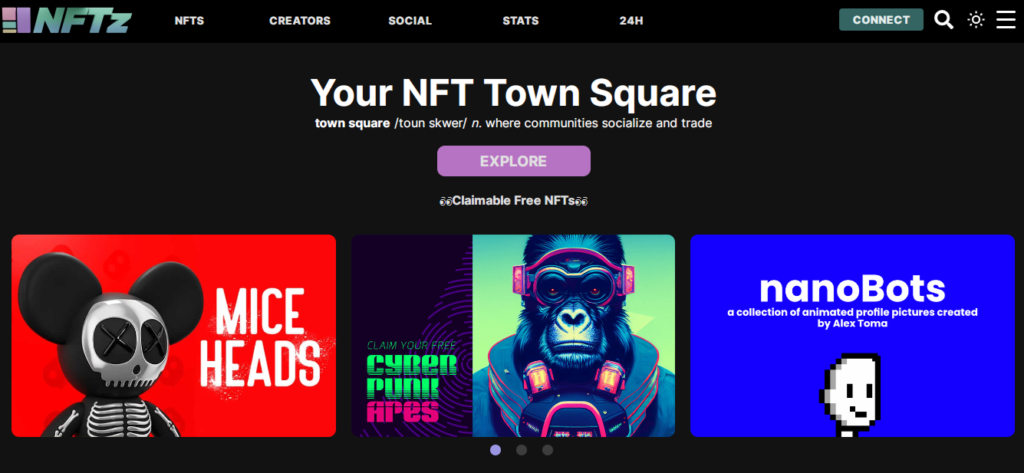
Social Tipping allows fans or viewers on DeSO to easily give diamonds to their favorite creators. Instead of “liking” content, users can send real money to content creators with the click of a button. Social tips incentivize content creators to develop regular content on the DeSo platform, while additional incentives also incentivize users to create valuable engaging content. Due to the way the DeSo platform works, there are several opportunities to collect tips.
Moving to a new platform can be a difficult choice if you already have a following. It takes time and effort to fully learn all the features of a new social app. While the decentralized social network may seem complicated, the DeSo platform is easy to navigate. There are also some unique benefits to using the DeSo platform that you won't find on a typical Web 2.0 social platform.
Did you know that some social media platforms can use your content without your permission after you post it? While most popular platforms allow you to maintain your intellectual property, you may not have full control over who sees it. With the DeSo platform, you're always in control of your content. Blockchain technology also allows you to easily move your content from one social app to another.
As mentioned above, making money is much easier with the DeSo platform. There are several methods that content creators can use to generate more revenue. The easiest way to make money is through diamonds, but you can also take advantage of the NFT marketplace or social tokens. Whether you want to make money by encouraging others to buy creator money or through social media tips, all you need to do is start posting engaging content and build a community to earn money. money on DeSo. The more people engage with your content, the greater your earning potential.
Creating new applications on the DeSo platform is quite simple and has a lot of resources available. The DeSo Developer Center is a great place to start researching what you need to complete your project. You will also be able to use programming languages you may already be familiar with, such as JavaScript or Python. Since the DeSo platform is open source, the possibilities for developing apps and using the web3 social layer are endless.
Blockchain technology makes it easy to keep your social media activities private. Instead of private companies holding your data, it is securely stored on the DeSo platform. It cannot be accessed without your permission, just like when you are using blockchain for financial applications.
Although the content you see online is not curated, it uses a reputation system. This decentralized system can be used to gauge the accuracy of the content you watch. Because users have to pay for all activities, they are less likely to see people with multiple accounts. The lack of an algorithm also allows users to adjust the content they display with greater precision.
The decentralized social network has achieved a lot in the past two years, especially when you consider that the DeSo platform is unique with its own set of challenges. In 2022 alone, Decentralized Social has launched Hypersync, DeSo.js and DAODAO.
The DeSo Foundation has released a detailed roadmap outlining the achievements DeSo hopes to achieve over the next few months. While the document reminds us that this roadmap is a draft, it helps to show some of the projects the development team is working on.
The third quarter of 2022 marks the beginning of the “Social Layer of Web3”, also known as Phase One. During this time, MetaMask was integrated, allowing the use of the cross-chain ecosystem. This also facilitates easy integration between Ethereum-centric platforms that need a decentralized social layer to communicate. This quarter also saw the launch of the DesoDollar stablecoin, MegaSwap and the ability to accept any amount, including USDC, on DAODAO. Later this year, users will be introduced to end-to-end encrypted group chats on-chain.
In Q4 2022, there will be a transition to Phase Two, also known as “DeSo’s Internet”. This phase will focus on recruiting new creators and increasing DESO liquidity globally. Will focus heavily on long-form content and encourage creators to blog. In turn, this will help creators monetize their content and, ideally, make DeSo a premier way to share long-term thoughts.
Storage capacity could also be upgraded in Q4 2022 with the launch of DeSo Vaults, a way to store content directly on the blockchain. Users will be able to create and display static html pages, essentially creating a completely decentralized version of the internet.
The final phase, “Revolution”, begins with the development of new content for deso.com and integration with the main NFT platform. Moving into 2023, users can expect to see more cross-chain social integrations appear on top blockchains. There will also be major upgrades to creator coins.
One of the more ambitious items on the roadmap is Infinite PoS, which is slated to launch in Q1 2023. Short for “Infinite Proof of Stake,” it will likely be published before Q4 2022, paving the way for DeSo 2.0.
DESO has changed a lot in price since its initial launch in June 2021. At the time of issuance, the token was worth just over US$178. As of December 5, 2022, this token is worth more than US$9. While this is a huge leap, it's been through two years of big ups and downs.
The listing of the token on Coinbase in December 2021 caused a temporary price spike. This strong rise took its price to a peak of $438.10, an impressive 151% price increase.
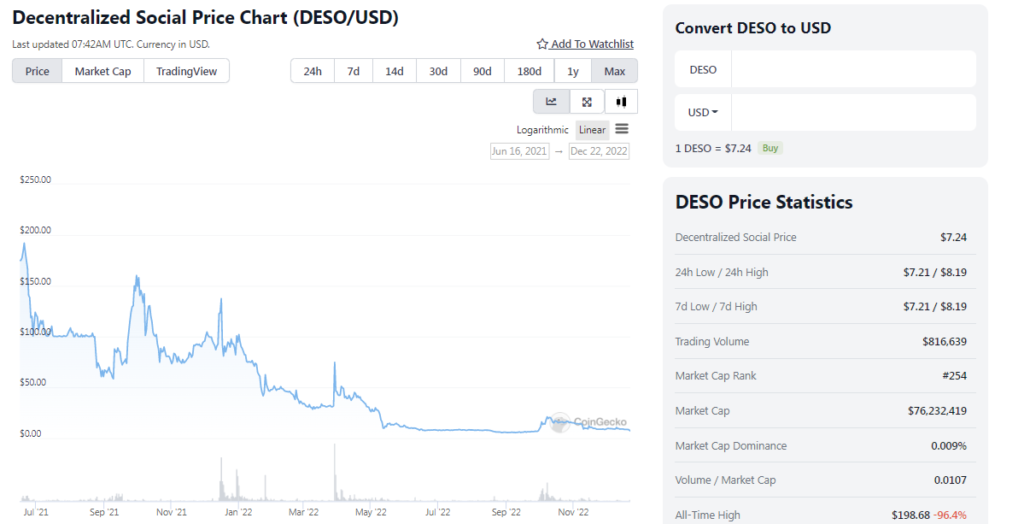
Although the blockchain is open source, a large amount of funds are currently being reserved for future development. Additional investments in the blockchain can lead to future price fluctuations and an increase in the number of individual users.
The DeSo platform is extremely ambitious and has a fast-growing roadmap with several items under development for the remainder of 2022 and early 2023. Integration with other blockchain technology could help the chain block is more widely used during the year. For example, the MetaMask integration allows users to interact with a variety of social application chains.
Since the platform is developer-friendly and open-source, we'll likely continue to see new apps being developed for years to come. The $50 million Octane Fund, announced in October 2021, is still driving the growth of the ecosystem. Combined with the strong momentum of the development team, DeSo technology can easily shape the way people use social networks.
Decentralized society leverages innovative Web3 technology to apply the advantages of using blockchain to social media. While the future may still be unclear for investors, the decentralized social platform boasts a number of advantages, including low storage costs, enhanced privacy, and a wide range of applications. decentralized society. It will be interesting to see how this evolving technology will shape the future of social media.
Let's learn about Sei Blockchain - a layer 1 chain focusing on trading. Dubbed “Decentralized NASDAQ” as it focuses on providing CeFi trading experience with DeFi tools.
In the Move-to-Earn trend, besides StepN's famous name, Digital Fitness is also a project that is quite appreciated by users.
ReStaking is a recently launched method and today, we will explore EigenLayer - the first project to provide a ReStaking solution on Ethereum.
Etherity Chain, where you can access authenticated NFTs while making a difference in society. Let's explore more about this NFT platform with TraderH4 in the article below.
Ethereum Name Service (ENS) is a simplified solution for Ethereum addresses, managed by the non-profit organization True Names LTD in Singapore.
While not comparable to the market share in liquid staking with Lido Finance, Rocket Pool is still working hard to help decentralize Ethereum.
Optimism is a potential Layer 2 project. In 2022, it launched OP, the project's own token. To better understand OP's activities and potential, we will analyze the tokenomics of this project.
Immutable X is a project that provides an extensible solution to improve the processing speed of NFT buying and selling, minting NFT and building NFT projects on Ethereum.
Gyroscope Protocol is an Ethereum-based Stablecoin protocol that uses existing Stablecoin assets to create a stablecoin P-GYD, pegged to USD.
Taiko is the next generation Layer 2 platform developed for Ethereum. In this article, we will learn together the salient features of the Taiko project.
Instadapp, an asset management solution provider in the DeFi space, raised US$2.4 million from investors in October 2019.
Many experts think that Zk Rollups projects will explode in 2023 and zkSync will be one of them. Let's look back at TraderH4 to 2022 to see what the project has prepared for the next boom.
Following part 1, we will continue to review the developments of the zkSync ecosystem in 2022.
What is Project Cronos? Learn more about the Cronos Token (CRO) as well as predict the future of this project through TraderH4's article.
Cosmos is a decentralized network of independent parallel Blockchains. Each Blockchain is powered by BFT consensus algorithms similar to Tendermint.
Ngoài PancakeSwap, hệ sinh thái BNB Chain còn có một AMM khác có TVL đạt 150 triệu USD chỉ sau hai tháng ra mắt, dự án này được gọi là Thena.
Blockade Games provides a platform that allows developers to create blockchain games. In addition, Blockade Games also creates many interesting free games.
UNQ Club is a project that provides a blockchain platform that allows investors to collect and manage existing NFT assets.
BENQI is one of the important pieces of the Avalanche ecosystem. Join TraderH4 to find out what BENQI (QI) is as well as detailed information about the QI token.
In addition to a cryptocurrency storage wallet, SafePal is also known to many investors for its SFP tokens and airdrop events with attractive rewards.
The fever from Akita Inu in the Crypto market in the past time has created a great buzz along with the rapid development of the "dog house token".
What is IoTeX? This is a blockchain built and developed in conjunction with the Internet of Things (IoT). Join TraderH4 to learn this article.
What is OKB? OKB is an exchange coin of OKX and the OKX Chain blockchain. Let's learn about OKX and OKB exchanges with TraderH4 in this article.
DROPP GG brings an innovative and novel idea to provide an NFT mint platform based on geographies outside of the real world.
CronaSwap is a DEX built on Cronos Chain, which has a similar model to Uniswap.
